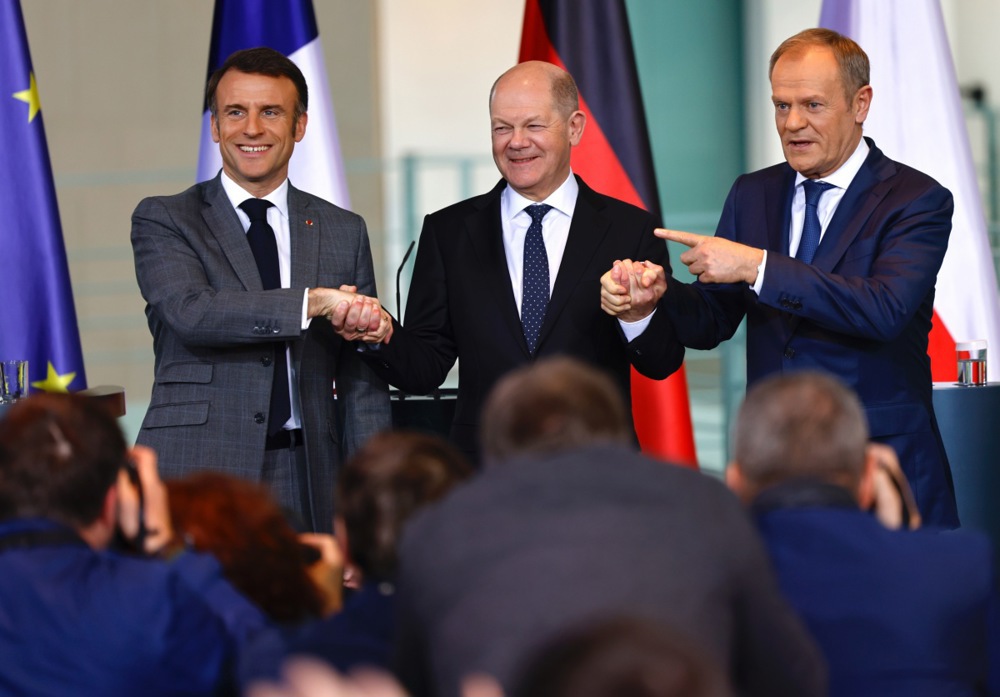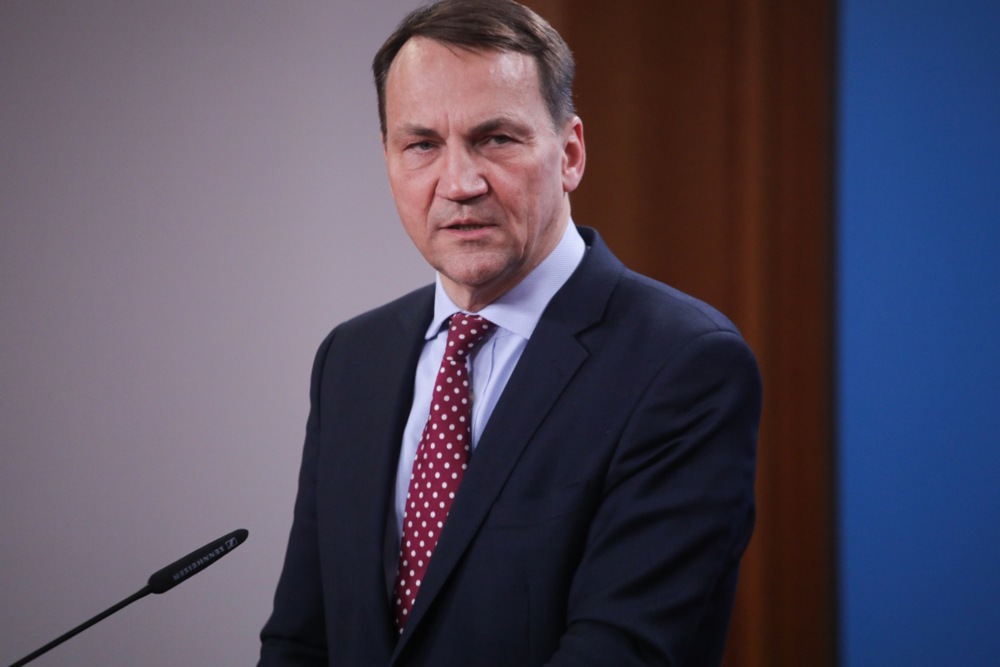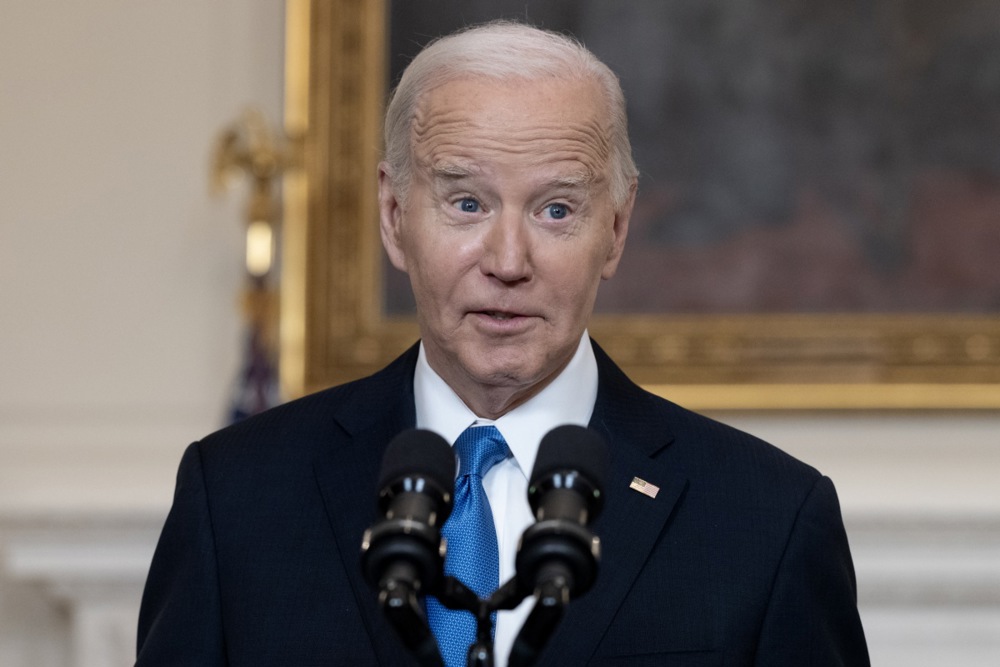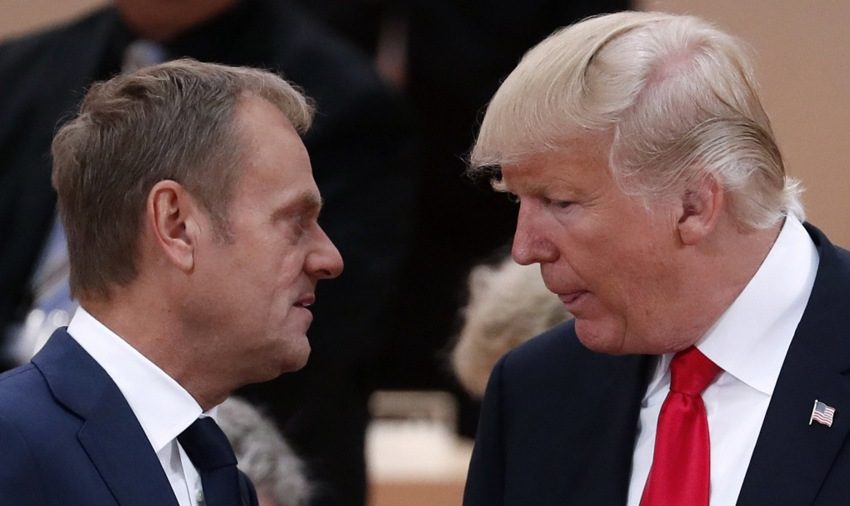Polish Prime Minister Donald Tusk has said that Poland had no plans to send its troops to Ukraine if a ceasefire were reached.
Tusk was speaking on December 12 during a joint press conference with French President Emmanuel Macron in Warsaw. His comments came amid speculation that Western powers could put boots on the ground in Ukraine to help safeguard any negotiated ceasefire.
The PM said Poland would work with France on a solution that would protect Europe and Ukraine from a resumption of the conflict if a peace deal was struck.
“To cut off speculation about the potential presence of this or that country in Ukraine after reaching a ceasefire … decisions concerning Poland will be made in Warsaw and only in Warsaw,” Tusk said.
Referring to any future presence of Polish troops in Ukraine, he added: “For now, we do not plan such actions.”
Tusk also said at the press conference that Poland was shouldering the greatest burden related to the war in Ukraine, both in terms of military and financial aid, and that Poland had the responsibility of protecting NATO’s border with Russia and Belarus.
The Polish PM’s stance was echoed by other Polish officials. Foreign minister Radosław Sikorski was attending a Berlin meeting of foreign ministers of Germany, France, Poland, Italy, Spain and the UK with the European Union High Representative for Foreign Affairs and Security Policy Kaja Kallas. He said that while Poland agreed anything related to Ukraine should not happen without Kyiv and Europe’s involvement, Poland shared a 600km border with Belarus and Russia “and supports the entire logistical operation for Ukraine” .
That, Sikorski said was “perhaps where our role lies” and “we are not considering sending any troops to Ukraine”.
Polish President Andrzej Duda’s national security adviser Jacek Siewiera on December 13 told public broadcaster radio Trójka that Poland did not have the resources to manage both its own and NATO’s security on the eastern border and also participate in any mission in Ukraine.
He added that “given the history of Polish-Ukraine relations and the fact that Russia has consistently been claiming Poland wants to take over western Ukraine, the presence of Polish troops in Ukraine might not be appropriate”. He added that European states were still a long way from reaching an agreement on what to do over Ukraine.
“There is still a lot of work to do before we have that,” he said.
Poland’s stance on Ukraine seemed to be closer to Germany’s rather than that of France. According to Reuters, a German Government source said on December 12 that talk of troops on the ground as part of security guarantees for Ukraine was “a bit like doing the fifth step before the second”.
Along with Germany, Poland and the US, Spain, Italy, Belgium, Slovenia, Hungary and Slovakia have also ruled out sending any troops to Ukraine.
Nevertheless, Poland has been one of Ukraine’s staunchest allies since Russia’s invasion in February 2022. It has provided billions of euros in military aid, including tanks, artillery and other equipment while hosting millions of Ukrainian refugees.
The Polish Government has also strengthened its own armed forces by purchasing advanced weaponry from the US and South Korea, including Abrams tanks and F-35 fighter jets.





